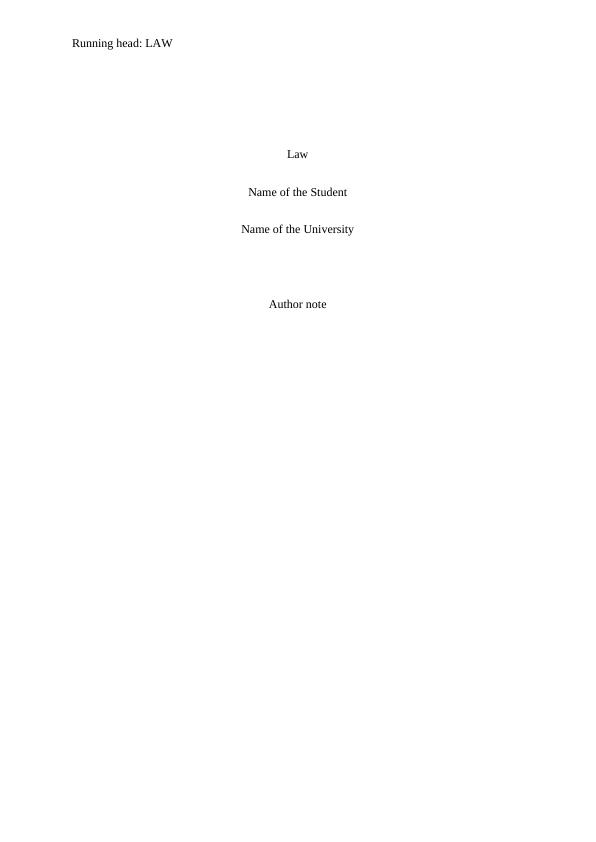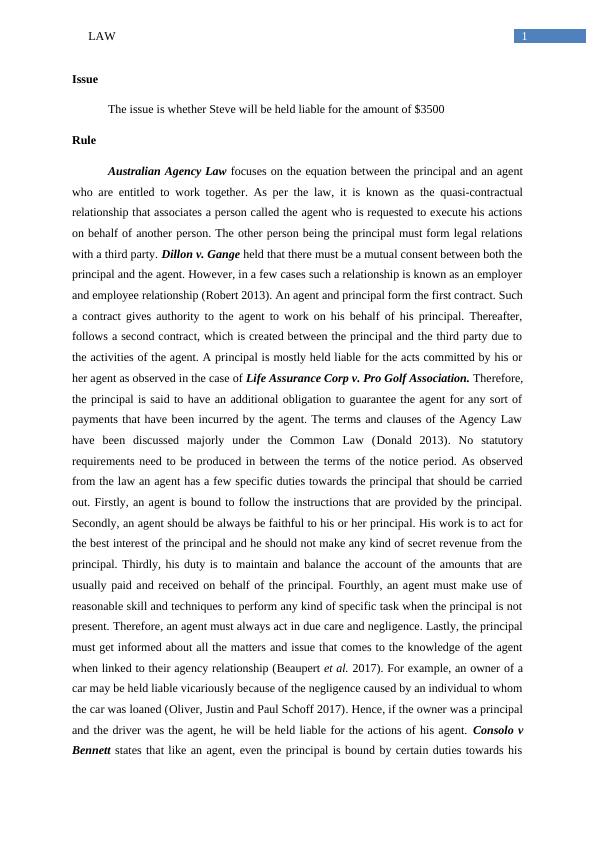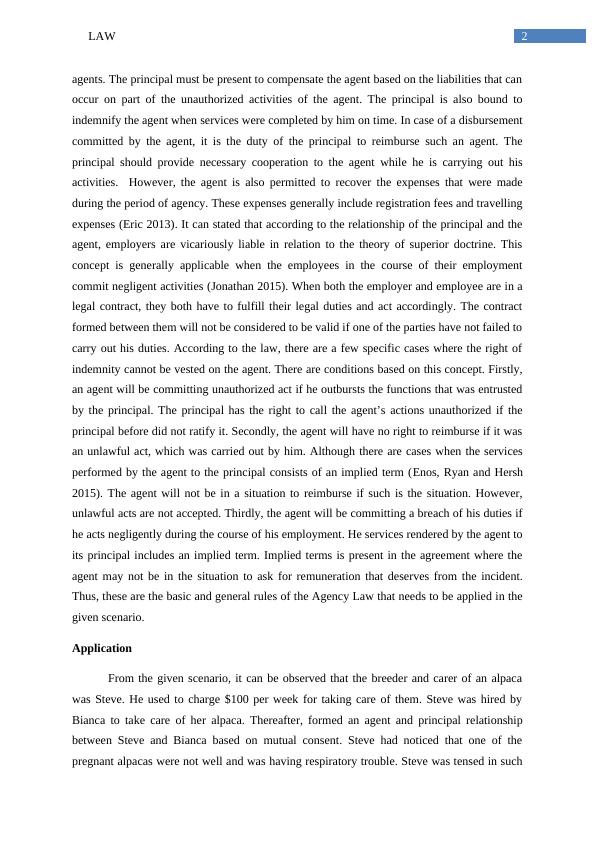Liability of Principal and Agent under Australian Agency Law
Assignment worth 20 marks, not to exceed 2000 words, to be submitted electronically by 12 noon via the assignment 'drop box' link available on LMS.
7 Pages2122 Words277 Views
Added on 2023-06-13
About This Document
This article discusses the liability of principal and agent under Australian Agency Law. It explains the rules and duties of the agent and principal, and applies them to a scenario where an alpaca carer incurred expenses for the operation of an alpaca. The conclusion states that the principal will be held liable to pay the amount of $3500 to the agent.
Liability of Principal and Agent under Australian Agency Law
Assignment worth 20 marks, not to exceed 2000 words, to be submitted electronically by 12 noon via the assignment 'drop box' link available on LMS.
Added on 2023-06-13
ShareRelated Documents
End of preview
Want to access all the pages? Upload your documents or become a member.
Agency Law and Liability: A Case Study on Steve and Bianca
|6
|1943
|301
Roxy's Liability and Rights under Agency Law
|5
|1222
|26
Understanding Agency Relationship in Canadian Business Law
|4
|890
|338
Company and Corporation Law
|7
|2229
|246
Empire Courier Case Analysis
|4
|744
|133
Legal Aspects Of Business | Explanation
|10
|3919
|256



